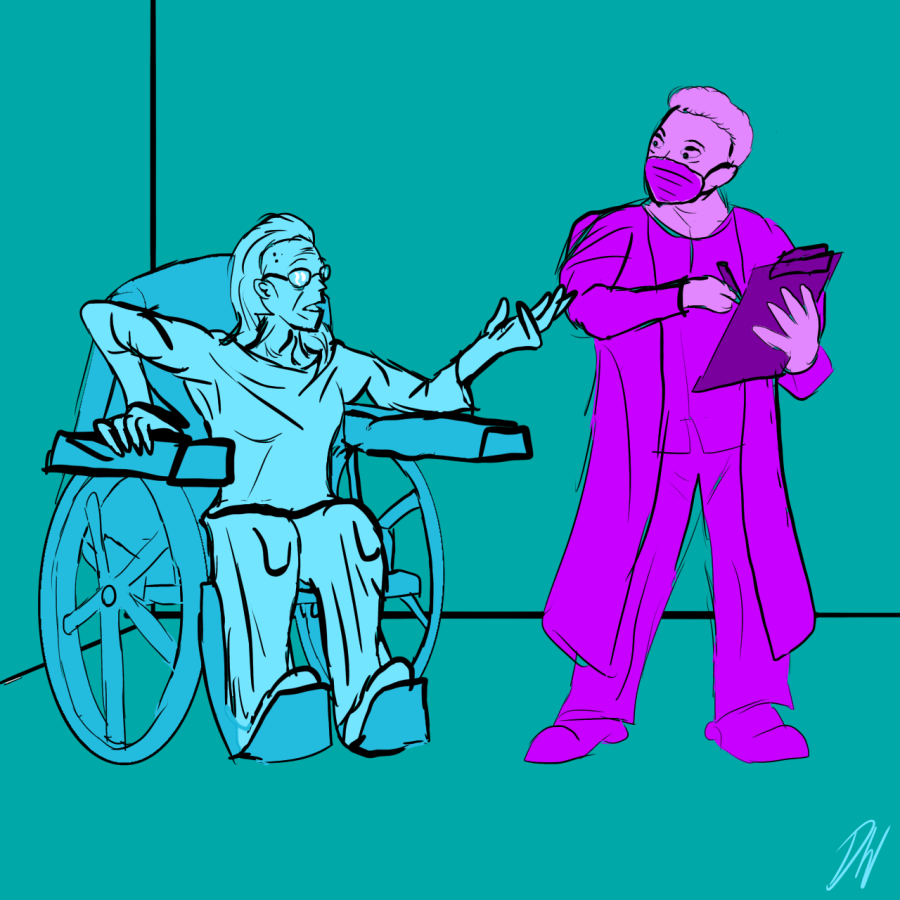UT alumnus funds Dell Med research on healthy aging for adults with MS, honors late wife
February 15, 2023
Greg and Kathy Moore met in a government class as UT students. When she was 33, Kathy received a multiple sclerosis diagnosis. She lived a full life with the disease for 20 years, until she reached the secondary progressive stage in 2010 and her MS rapidly progressed.
Greg Moore recently established a $1 million fund to support research at Dell Medical School on healthy aging for adults with multiple sclerosis, honoring his late wife Kathy who died from the disease in 2019.
Moore is president and CEO of the Kathleen C. Moore Foundation, which he started with his wife to fund research to fight MS. The foundation’s gift establishes the Kathleen C. Moore Research Fund for Hope at Dell Medical School, funding research by Léorah Freeman, assistant professor of neurology and diagnostic medicine.
MS is an inflammatory disease of the central nervous system that causes varying symptoms, from muscle weakness to loss of the ability to walk or talk. People over 50 with MS generally have higher rates of disability and need more care as the disease progresses, Freeman said, but most research focuses on younger adults.
“I wanted to understand how the disease evolves as people get older (and) how can we better care for them,” Freeman said. “And then also connect with older adults to empower them about caring for themselves as they get older.”
Freeman said her 10-year research program integrates clinical care for older patients with research and data collection. The researchers will also communicate their research findings and health information to the MS community so people with the disease can benefit from their work, she said.
Moore said Kathy was always passionate about education and helping people, so Freeman’s work would have meant a lot to Kathy. Kathy’s passion for helping others also led her and Moore to start their foundation in the first place, he said.
“We’ve been very, very lucky financially, and so we wanted to be able to help other people that didn’t have the financial resources that we did,” Moore said. “Plus, we wanted to destroy the disease.”
Freeman said the story of Kathy Moore resonated with her because Kathy reminded her of many patients she has treated over the years.
“I had met a lot of patients and their care partners who had been in this situation of seeing age take its toll on beautiful human beings and people feeling the loss of hope from the disease advancing,” Freeman said.
While the ultimate goal of research is to end the disease, Moore said it’s important to also support people living with MS and work to improve their lives.
“It’s a real hard disease to take care of,” Moore said. “So when Dr. Freeman came up with a combination of research, as well as helping the underserved in Texas, … it was very exciting to me.”
As UT alumnus, Moore said the University meant a lot to him and Kathy, which is why he wanted to give money to research at Dell Medical School.
“What starts here changes the world is what we say — I’m hoping that my little piece will help to change the world a little bit,” Moore said.”



